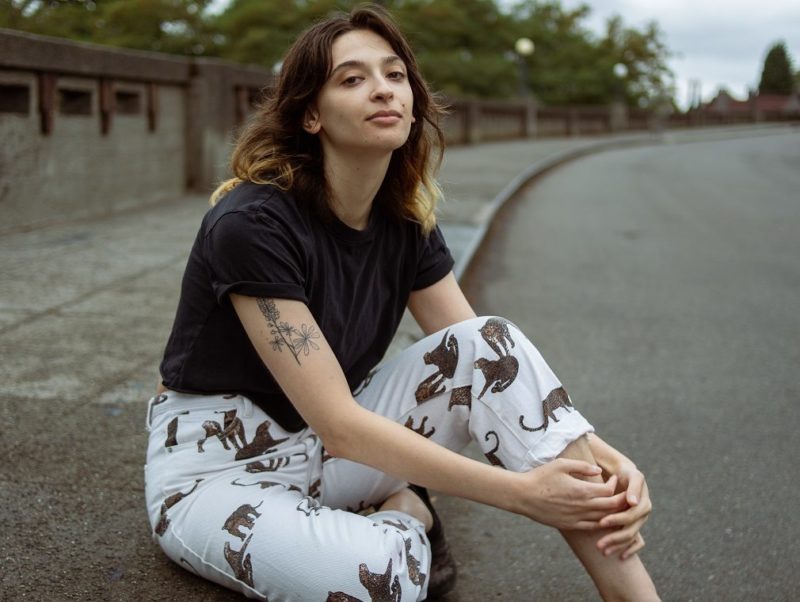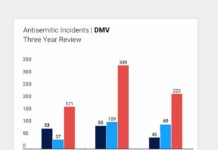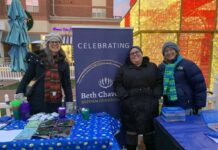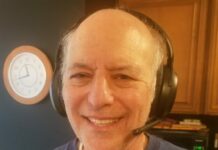
Jake Maia Arlow, 24, is an author, podcast producer and self-proclaimed bagel connoisseur. Her first novel, “Almost Flying,” was released in 2022 and her debut YA novel, “How to Excavate a Heart,” will be out Nov. 1. Arlow describes the novel as “a lesbian Jewish christmastime rom-com” set in Washington, D.C.
What’s your Jewish background?
My parents are both Ashkenazi Jews with more of a cultural connection to Judaism than a religious one. I grew up going to synagogue only when we visited my rabbi uncle, but I always felt connected to Judaism. My favorite memories are playing with plague finger puppets at my aunt’s seder and hearing my grandma sing the Yiddish songs her dad sang to her. When I got to college, I fell into a friend group of mostly queer Jews, and it was incredible.
What’s your book about?
“How to Excavate a Heart” is about two lesbian Jews falling in love over winter break in D.C. It’s also about healing from heartbreak, being unabashedly passionate about your interests (like dead fish or weather) and navigating being a Jew living in the very Christian country that is the U.S. during the “Christmas season.”
How has being Jewish influenced other aspects of your identity (or vice versa)?
My queerness and my Jewish identity feel inherently tied to one another. As I mentioned, during college I somehow stumbled upon a group of queer Jews who would break fast together and talk about our lives and go to protests together. Through them, and through archival research and conversations with my family, I’ve learned so much about queer Jewish and socialist history and how connected all of those things are.
How does being Jewish/living in D.C. tie into your book?
They are both integral to the book. The main character, Shani, is only living in D.C for a few weeks, but in that time she falls in love with the city. The same thing happened to me when I first moved to D.C., though it was over the course of a few months. I fell in love first with the Metro, which sounds silly but I felt like the stations were the most beautiful thing I had ever seen. As for being Jewish, that was always going to be part of my book, and of everything I write, because it’s how I move through the world. I’m a Jew first and foremost, so it was always going to be a factor in the book. I wanted the two characters to have conversations about what it feels like to be an American Jew during the “holiday season.” They represent both sides of how I see it — both as something annoying and nefarious and something beautiful.
What brought you to the D.C. area?
I was interning at NPR for the summer, and I spent every moment outside of work going to museums and taking the Metro to new neighborhoods and walking around.
What advice do you have for Jewish aspiring authors?
Write the books you want to read. It’s not up to you to translate your religion or culture for a [non-Jewish] audience. And if you’re a queer Jew, a Jew of color or any other Jew that doesn’t fit neatly into the box most people in the U.S. have put us in: your story matters the most. Please write it.





